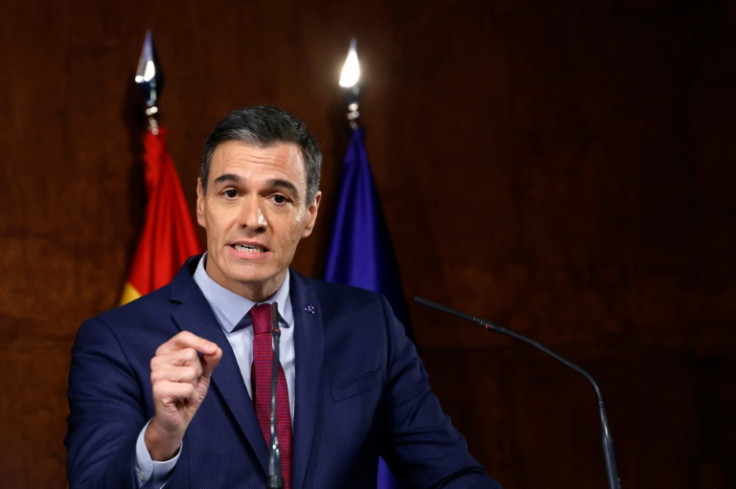Sanchez To Face Spanish Parliament To Seek New Term

Pedro Sanchez will seek a new term as Spain's prime minister in parliament Wednesday, after securing the backing of Catalan separatists in exchange for a controversial amnesty.
The Socialist leader, in office since 2018, is to begin an address to the assembly at noon (1100 GMT) to present his priorities for another four-year mandate ahead of a vote of confidence on Thursday, which he is expected to win.
While his Socialists finished second in a July general election, Sanchez has reached deals with smaller parties to ensure he has the backing of 179 lawmakers -- three more then the 176 absolute majority that is needed.
The conservative Popular Party (PP) won the most seats in the election but fell short of a majority and was unable to get backing from other parties to win its investiture vote in September.
Sanchez -- who has made a political career out of bold bets -- secured the support from the far-left in exchange for a deal to raise the minimum wage and reduce the length of the working week to 37.5 hours from 40 hours.
The 51-year-old also won the backing of smaller regional parties, including Basque and Catalan separatist parties, which has angered the Spanish right.
In exchange for their support, Catalonia's two main separatist parties demanded an amnesty for hundreds of people facing legal action over their roles in the northeastern region's failed push for independence in 2017.
Sanchez, who had previously rejected the measure, now argues the amnesty will help close the "wound" opened by Catalonia's secession bid, which sparked Spain's worst political crisis in decades.
The most high-profile beneficiary of the amnesty will be Carles Puigdemont who headed the Catalonia regional government in 2017 when it made a short-lived declaration of independence after a violence-marred referendum banned by Madrid.
Puigdemont fled Spain to avoid prosecution and now lives in Belgium. Many Spaniards consider him an enemy of the state.
Hundreds of thousands of flag-waving Spaniards rallied nationwide Sunday against the amnesty, answering a call from the PP to take to the streets,
For over a week the far-right has staged daily protests, which have sometimes turned violent, outside of the Socialist party's headquarters in Madrid.
The amnesty "weakens the State" and "rewards those who declared themselves to be the enemies of Spain," said top PP official Miguel Tellado. He urged Sanchez to flee Spain hidden "in the trunk of a car" like Puigdemont did in 2017.
The PP and far-right party Vox, which has called for "resistance" against Sanchez's new government, have vowed to challenge the amnesty in the courts.
The draft amnesty law, which was tabled in parliament on Monday and is expected to face a vote in the coming weeks, has also sparked criticism from judges and raised concerns in Brussels, which has asked for more details.
In a sign of the tensions over the measure, over 1,600 police will be deployed on Wednesday and Thursday for Sanchez's investiture debate and vote in parliament, according to the interior ministry.
That is a similar deployment of officers that is used during football matched deemed "high risk".

© Copyright AFP 2024. All rights reserved.







